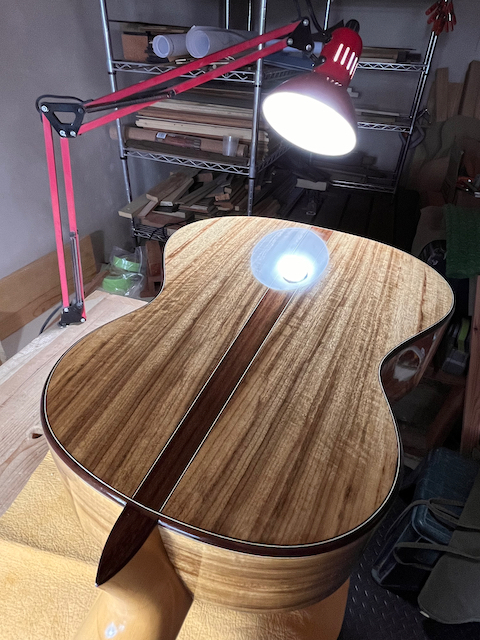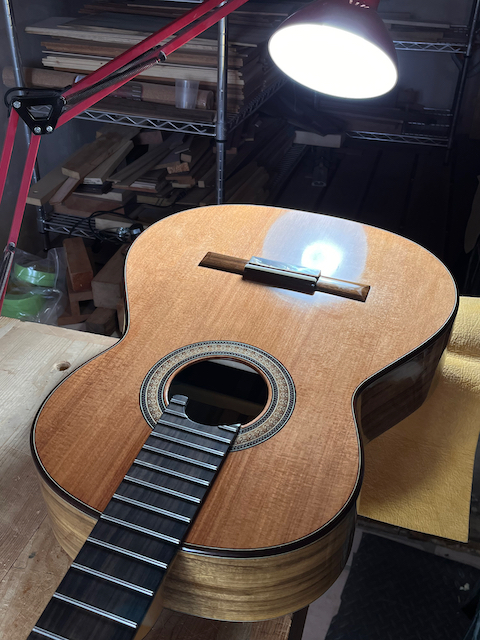10 Tips for French Polishing
Look, listen and do, never ask why!
Kennosuke Hayakawa, master Japanese carpenter
I started learning the technique of French polishing about seventeen years ago, I watched Ron Fernandez's video, French Polishing for Guitarmakers, 2.0., followed his instructions to the letter on a guitar and was stunned by the beauty of the finish! Before I purchased this video I had used several well known varnishes and various recipes gleaned from wood working magazines on my guitars, the resulting finishes were very disappointing. Yes, French, or English polishing, depending on who you learn from, can be a difficult technique to master, it requires much patience and many hours at the workbench practicing with shellac, alcohol and wadding wrapped with a piece of cloth.
Tip #1: Practice, practice, practice!
Tip #2: Don't be afraid to experiment! Try different grades of shellac, try a 1lb cut versus and 2lb cut, use olive oil as a lubricant instead of mineral oil, etc., etc!
Tip #3: Practice, practice, practice!
Tip #4: Do your research! You can still find many out of print books on French polishing, many were published over 100 years ago when shellac was the finish for fine furniture. Yes, there are many online videos that you can watch on French polishing, but many of the old shellac recipes are superior to just straight up shellac.
Tip #4: A drier pad will build up shellac faster that a dripping wet pad. Watch Mr. Fernandez's video.
Tip #5: Experiment! Try some of the old recipes, many of the additives help build a shiny finish more quickly than just straight shellac.
Tip #6: Research varnish recipes used by violin makers. Violin makers work with a 400+ year old varnish tradition, they know what they are doing.
Tip #7: A truly fine and exceptional French polished finish can't be completed in one day, be patient and don't be afraid to spend time working.
Tip #8: Buy the best quality shellac that you can afford. Shellac prices are rising do to loss of shellac crops, thanks to global warming and loss of habitat, but the highest quality shellac gives the best finish!
Tip #9: Remember, grain alcohol, along with 2F and 4F pumice are your friends! I use 90 proof grain alcohol and an expensive brand of olive oil for my work.
Tip #10: Practice, experiment and research! Becoming adept at French polishing takes work and dedication!
Books that I recommend are:
Adventures in Wood Finishing, George Frank
Staining and Polishing, Charles H. Hayward
Traditional French Polishing for Beginners, Les Holmes
The French Polisher's Handbook, A Practical Book by a Practical Man
French Polishing and Wood Surface Finishing for Amateurs, C. Harding
And there are many articles on French polishing that you can find, I often re-read the article by George Frank which can be found in the archives of Fine Woodworking Magazine.
Now, get out into the shop and work!





Comments
Post a Comment